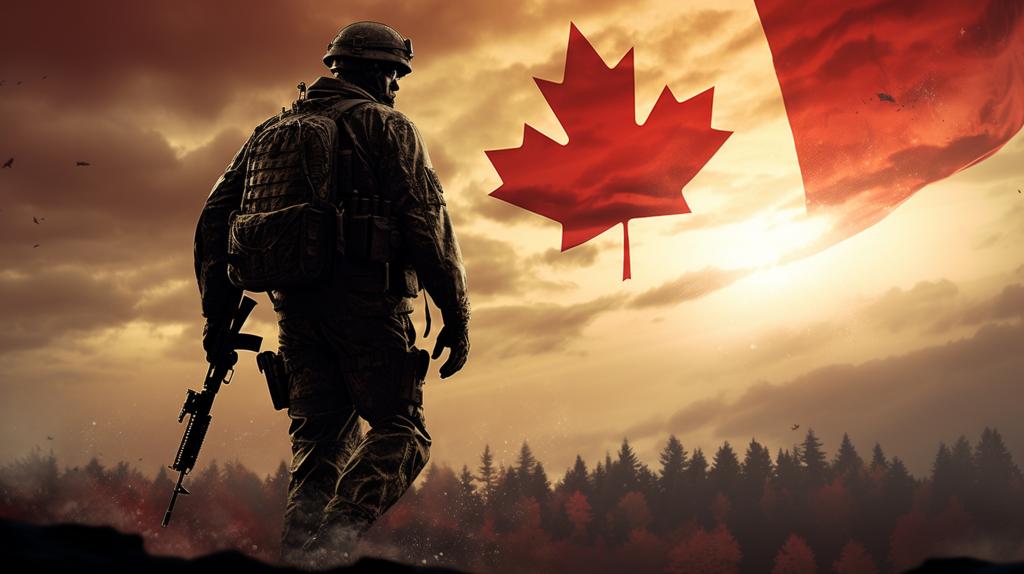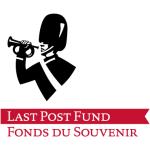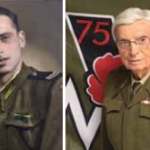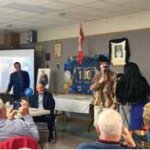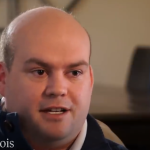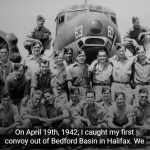That was when the guns fell silent! The Great War was over! But it was not a clear cut victory; it was an armistice negotiated under duress. It should have been a cause for rejoicing. On the allied side it was, but the German people felt betrayed by their leaders. The Treaty of Versailles was incredibly punitive. France, particularly, imposed brutal reparations, so that German workers produced goods only to have them shipped to France by the trainload and the workers had nothing to bring home. Germany experienced runaway inflation, such that people working for wages had to be paid twice a day because the German money devalued so much in ten hours that it didn’t have enough buying power at days end for even subsistence level food. Wholesale bankruptcies were inevitable. There was rioting and lawlessness in the streets. This was the perfect breeding ground for the rise of the Nazi party, and when Hitler attempted a putsch, he was sent to jail and wrote what became the Nazi bible, Mein Kampf (My Struggle). He worked his way into power and strong armed his way through a weak Reichstag until he was able to gain political control of the government. That power was cemented with jobs for everyone with an enormous military buildup. In defiance of the treaty of Versailles, a major rearmament was undertaken with things like gliding clubs to train up pilots for a clandestine air force (The Luftwaffe). Athletic and hiking clubs to grow the army. Youth clubs like the Boy Scouts were replaced with the Hitler Youth with a strong emphasis on military training. The outcome of all the political maneuvering and the fact that Hitler was looked upon as the savior who pulled them out of the misery of the financial collapse, he was named Fuhrer, which was supreme authority with no restrictions. A natural follow on was the repudiation of the Treaty of Versailles. The glider clubs and other subterfuges were no longer needed, and Germany went all out with their military. They built U Boats and Panzers and Messerschmitts and dared the world to do anything to stop them. The Spanish Civil War was a good proving ground for their aircraft and other war materials. On the Allied side, the Spanish flu pandemic, which had started during the latter part of the war died out after the armistice. The sheer relief of war and pandemic’s end kicked off the roaring twenties. It was followed by the stock market crash and the nightmare of the depression. The Poppy became the symbol for the sacrifices made by members of the military and was used to raise funds for the benefit of veterans. Rip Riopels grandfather on his mother’s side served with the British Army and was gassed in WW1. He brought his family out to Canada on the Soldier Settlement plan which made land available in the colonies to anyone who had an honorable discharge from service in the British military. It operated on the same guidelines as the Homestead Act. When he passed away in the depths of the depression from his injuries suffered during the war, the family lost the farm and were forced to move to Edmonton. His grandmother was in such dire straits that she had to make the decision to tell her three teenage boys that they were on their own as there was barely enough to feed the three girls who were all under twelve years of age. It is hard to imagine how life was for them, not yet fully grown, with no one to turn to for help or advice. The boys rode the rails and picked up whatever work they could and ate in soup kitchens. Malcolm, the oldest hooked up with the militia in Cranbrook and became an artilleryman and the two younger boys became infantrymen with the Loyal Eddies at the declaration of war in 1939. The story is told that it was the men of the Loyal Edmonton Regiment who invented mouse holing at Ortona when house to house fighting on the streets was sure death. Instead they blew holes in the abutting house walls to gain access without going outside. Rip’s mother often said that her brothers didn’t join up so much for patriotic reasons as they did for a full belly and a pair of boots. Of the three boys, one came home having lost a leg at Ortona and a second one in the same battle acquired a head wound and a body riddled with shrapnel. The third brother came back, with an English war bride and what the family thought was a mean and miserable disposition. It wasn’t till years later that it was discovered that he probably had PTSD. There were three brothers from the Riopel side of the family who joined up. Two in the Army and Rip’s dad joined the Air Force. There were others who served, some cousins and friends. Just five years after the horrors of two world wars with a death toll in the tens of millions, humans couldn’t find a way to keep from going to war again! Korea was next. Rip didn’t know anyone that served in that one, (except Hawkeye and Radar) Rip’s oldest brother, Bernie, joined the Navy, but was awarded an honorable discharge for medical reasons. As Korea was ending with a truce because it was no longer in fashion to demand a surrender, Rip reached the age when he could join Air Cadets; this went on until he was old enough to join the reserves. When he was finished with high school, he transferred to the regular force. Canada was not involved in any wars during his service. Though it was a close call with Cuba, but the Americans were up to their butts in Vietnam. Substantial numbers of Canadians volunteered for that one. During Rip’s service Canada was involved with the U.N. and was involved in all kinds of trouble spots all over the world. He served in Egypt. A lot of our people wore the Blue Beret or what the troops called their ‘don’t shoot me hats’. One of Rip’s nephews was in the Navy for several years and another one was in the Army and had a U.N. posting in Cyprus as well as couple of tours with N.A.T.O. in the former Yugoslavia. Our next involvement was in Afghanistan after 9-11. Canada pulled out after ten years which was our longest war and the Americans left after twenty. The Canadian government did not do itself proud, to get our loyal Afghani interpreters who had stood by our troops in the field as well as the people that worked in support roles, out of the country while it was still possible, even though it was known that anyone who had worked for the allies and their families were under threat of being hunted down and killed by the Taliban as soon as they gained power. Canada had ten years to do this and waited until the Americans were leaving to begin to plan how to do it. Ten days prior to the final pullout, there were two C17s sitting on the ground in Kuwait waiting for permission to land in Afghanistan. The question was never asked ‘permission from whom?’ When they finally went in to begin the evacuation, some regulation was invoked to justify only one hundred people per flight could be accommodated because that was all the seat belts installed in the aircraft. The Americans, using the same C17 equipment were packing in up to five hundred per flight and this was shown on T.V. What also appeared on T.V. was people so desperate to get out that some of them clung to a U.S. aircraft as it was taking off and their bodies were seen falling away as the plane passed an altitude of a thousand or more feet. Wearing a seat belt in an aircraft like this wouldn’t save your life if it crashed. In times of desperation, desperate measures must be taken. If we get involved again (and we will) in some other war or police action or U.N. assignment, it is hoped that the troops will be permitted to serve honorably instead of being smeared with the slime that our politicians seem to love to wallow in. The American withdrawal from Afghanistan coincided with the twentieth anniversary of 9-11 and the one hundredth year since the establishment of the poppy as a remembrance of all the dead and wounded as well as the untold sacrifices from WW1 on.

